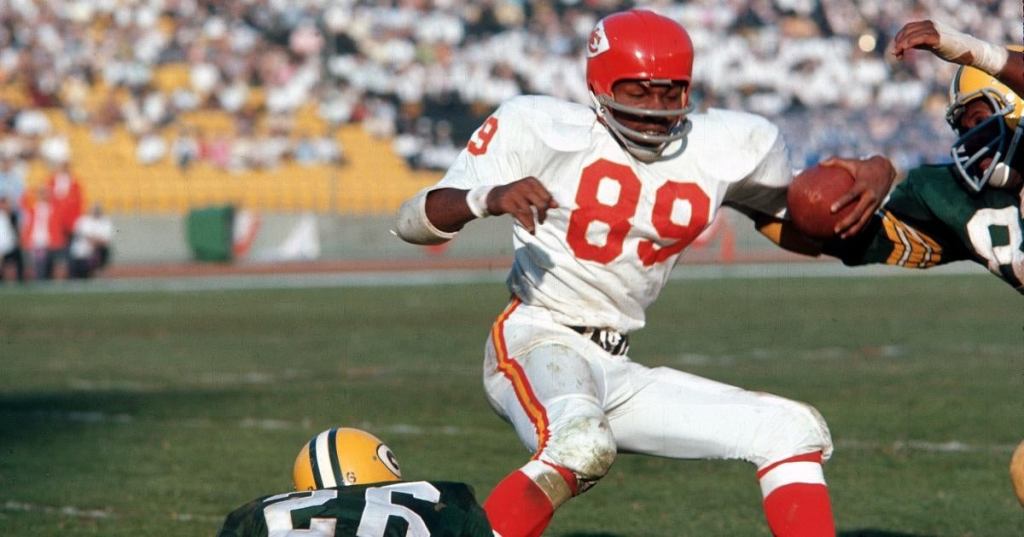Otis Taylor, the Longtime Kansas City Chiefs wide receiver who won a Super Bowl with the team, died last Thursday, the team announced. He was 80. The cause of death was not officially announced, but the family confirmed he died after having multiple health problems, including Parkinson’s disease and dementia.
“Otis was a Chief throughout his 11-year career, and he played an integral part in the early success of our franchise,” said Chiefs Chairman/CEO Clark Hunt in a statement. “He became a Kansas City icon with his signature touchdown in Super Bowl IV, as he helped the Chiefs bring home our first Lombardi Trophy. He was one of the most dynamic receivers of his era, and he helped revolutionize the position. Off-the-field, he was kind and dedicated to his community,” he continued. “Otis’ legacy will live forever as a member of the Chiefs Hall of Fame.”
Videos by PopCulture.com
Taylor joined the Chiefs in 1965 after being selected by the team in the fourth round of the 1965 AFL Draft. He spent his entire career with the Chiefs and recorded two 1,000-yard seasons. He is remembered for his 46-yard touchdown catch in Super Bowl IV that clinched the Chiefs the win over the Minnesota Vikings. Taylor was also part of two AFL Championship teams and was voted to the Pro Bowl and All-Pro First Team in 1971 and 1972. His death comes seven months after the death of the Chiefs’ legendary quarterback Len Dawson. Taylor and Dawson were close friends and a dynamic duo on the football field.
“Otis made my job easy,” Dawson once said. “If you got the pass to Otis, you knew he’d catch it.” Taylor ended his career with 410 receptions, 7,306 yards and 57 touchdowns. He’s a member of the Chiefs Hall of Fame but is not a member of the Pro Football Hall of Fame.
Once Taylor his playing career, he spent 11 years as a scout for the Chiefs. In 1990, Taylor was diagnosed with Parkinson’s and associated dementia. And in 2012, the Taylor family filed a lawsuit against the NFL, claiming it was legally responsible for the health issues he experienced beginning with seizures in 1969.





